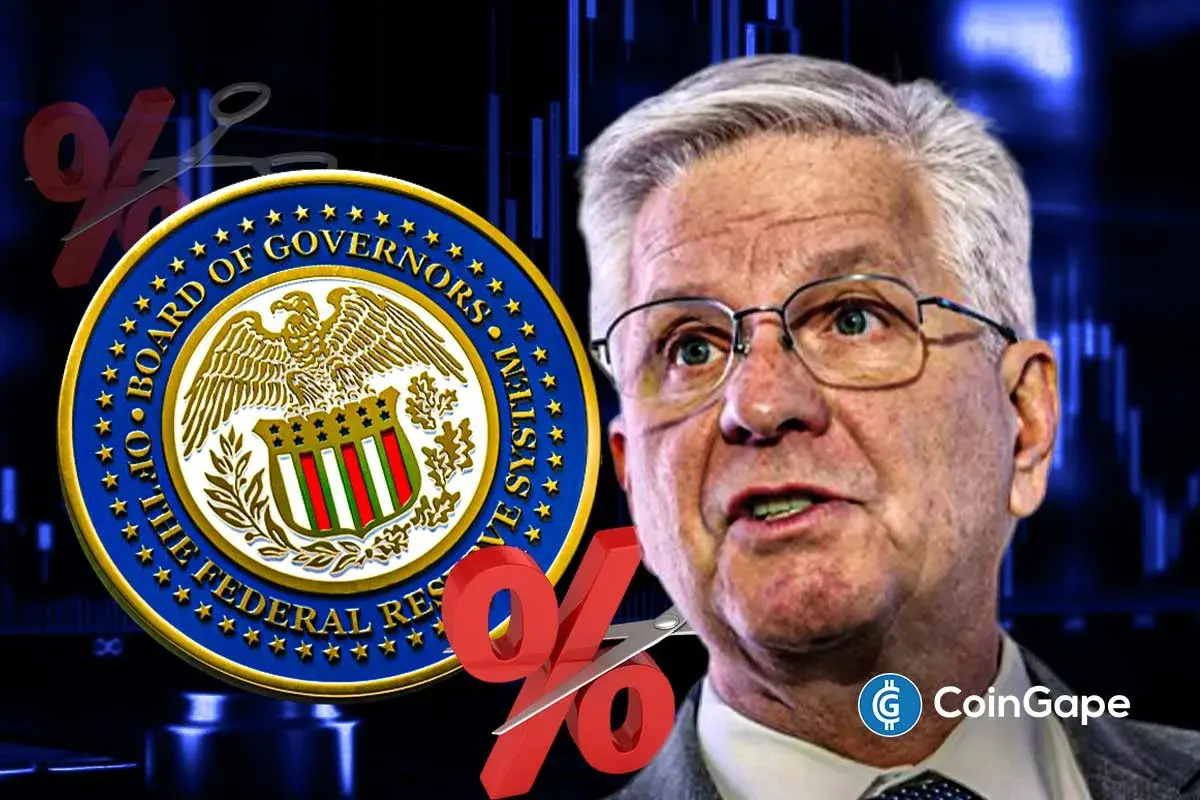Custodia Bank Ruling: Why Did Judge Skavdahl Make a 360 Degree Turnaround?

Highlights
- Judge Skavdahl reverses stance, backs Fed on master account authority.
- Custodia Bank mulls appeal after Fed's master account denial.
- Fed wins in court, no obligation to grant master accounts to all.
Justice Scott Skavdahl, who has been hearing the case between Custodia Bank and the Federal Reserve, changed his view on the issue of the Fed’s power over the master account applications. At first, Judge Skavdahl appeared to be doubtful that Congress had given the Federal Reserve complete freedom in determining such applications.
This viewpoint entailed a certain degree of limitation on the Fed’s discretionary authority. Yet in a later decision, Judge Skavdahl sided with the Federal Reserve, inferring that the legislative provisions actually grant the Fed the final power of determination.
🚨NEW: These two opinions, made nearly a year apart, come from Judge Skavdahl in the @custodiabank vs. @federalreserve case.
The first is from his opinion denying the Fed’s Motion to Dismiss. The second is from Friday’s decision on Summary Judgment where he sided with the Fed… pic.twitter.com/bqu6dzKigN
— Eleanor Terrett (@EleanorTerrett) March 30, 2024
Custodia Bank vs the Federal Reserve
Custodia Bank, a bank based in Wyoming, sued the Federal Reserve after a protracted decision-making process in respect to its master account application. Master accounts are important because they make it possible to have direct access to the services offered by the Federal Reserve without the intermediation of an operational bank. The lawsuit of Custodia followed the delay of the Federal Reserve Bank of Kansas City and its ultimate rejection of the application.
The legal angle of the bank was that the decision of the board from the Fed to disqualify the bank was inappropriate and influenced the decision of the Kansas City Fed, and so, the disqualification was outside the Fed’s discretion for nonmember depository institutions.
Judicial Analysis and Implications
In his final ruling, Judge Skavdahl ruled that no federal laws require the Federal Reserve to give master account access to every applicant. This interpretation hinged predominantly on the assertion that the Kansas City Federal Reserve arrived at an autonomous decision, thus without any influence of the Board of Governors.
The judge accentuated the dangers of providing unlimited access to the services of the Federal Reserve and the risk of a regulatory ‘race to the bottom’ among states. In such a situation, minimally regulated institutions could gain direct entry to the Fed and threaten the integrity of the financial system.
Custodia Bank’s Response
Custodia Bank, upon the ruling of the court, voiced its resolve to pursue its vision of a secure technological bank. Representing Custodia, Nathan Miller focused on the difficulties that were met in the struggle against the practice of the Federal Reserve, but the bank’s commitment to its aspirations was strongly highlighted.
At the moment, Custodia is looking at all the alternatives, including an appeal, as it struggles to deal with the consequences of this legal defeat.
Read Also: Farcaster Developer Merkle Gets Unicorn Valuation Amid Market Shift
Play 10,000+ Casino Games at BC Game with Ease
- Instant Deposits And Withdrawals
- Crypto Casino And Sports Betting
- Exclusive Bonuses And Rewards

- US-Iran War: Reports Confirm Bombings In UAE, Bahrain and Kuwait As Crypto Market Makes Recovery
- XRP Price Dips on US-Iran Conflict, But Capitulation Signals March Rebound
- Crypto Market at Risk as U.S.–Iran War Threatens Inflation With Oil Price Surge
- Polymarket U.S.–Iran Strike Bets Fuel Insider Trading Speculation as Crypto Traders Net $1.2M
- Cardano’s DeFi TVL Climbs as USDCx Stablecoin Launches on Network
- Top Analyst Predicts Pi Network Price Bottom, Flags Key Catalysts
- Will Ethereum Price Hold $1,900 Level After Five Weeks of $563M ETF Selling?
- Top 2 Price Predictions Ethereum and Solana Ahead of March 1 Clarity Act Stablecoin Deadline
- Pi Network Price Prediction Ahead of Protocol Upgrades Deadline on March 1
- XRP Price Outlook As Jane Street Lawsuit Sparks Shift in Morning Sell-Off Trend
- Dogecoin, Cardano, and Chainlink Price Prediction As Crypto Market Rebounds

 Buy $GGs
Buy $GGs

















